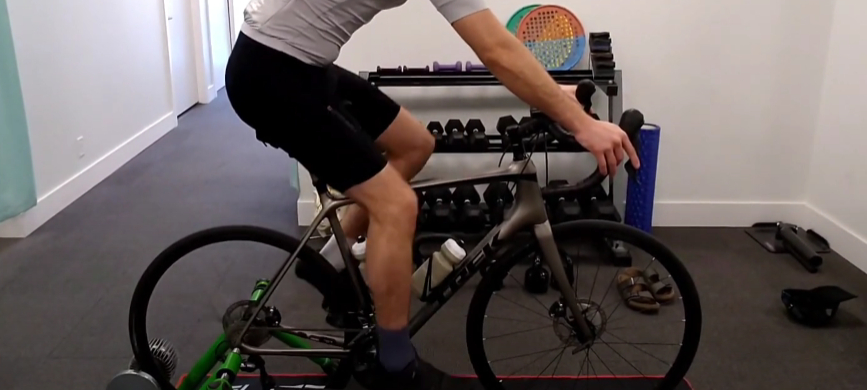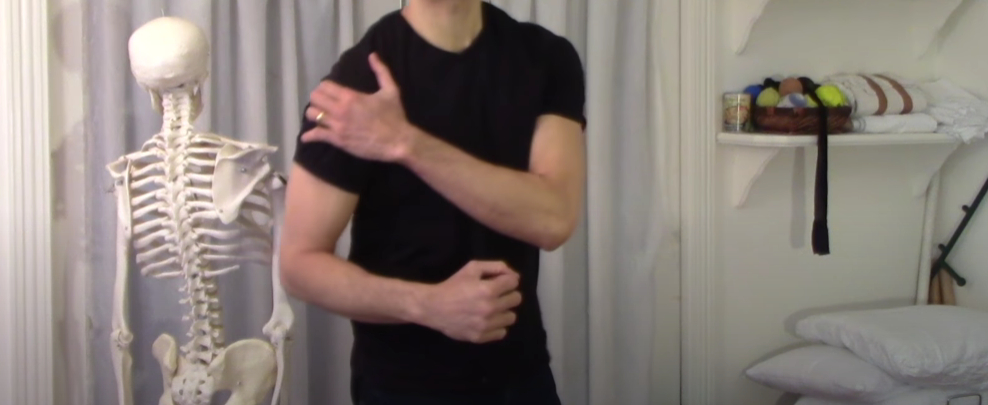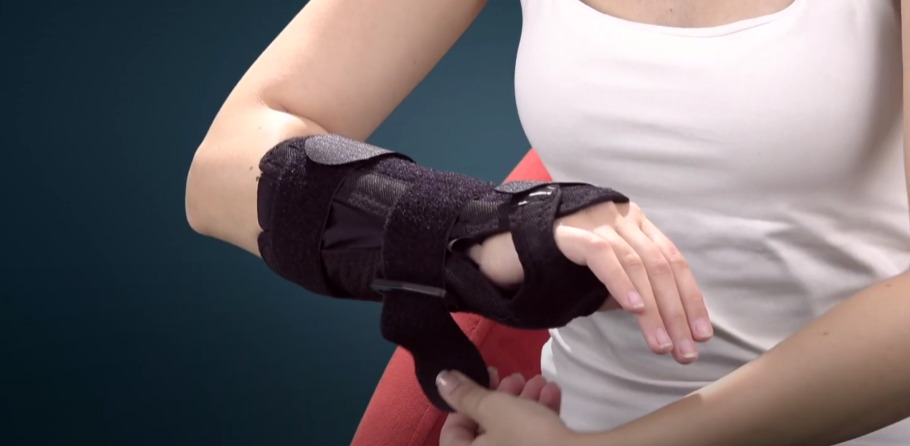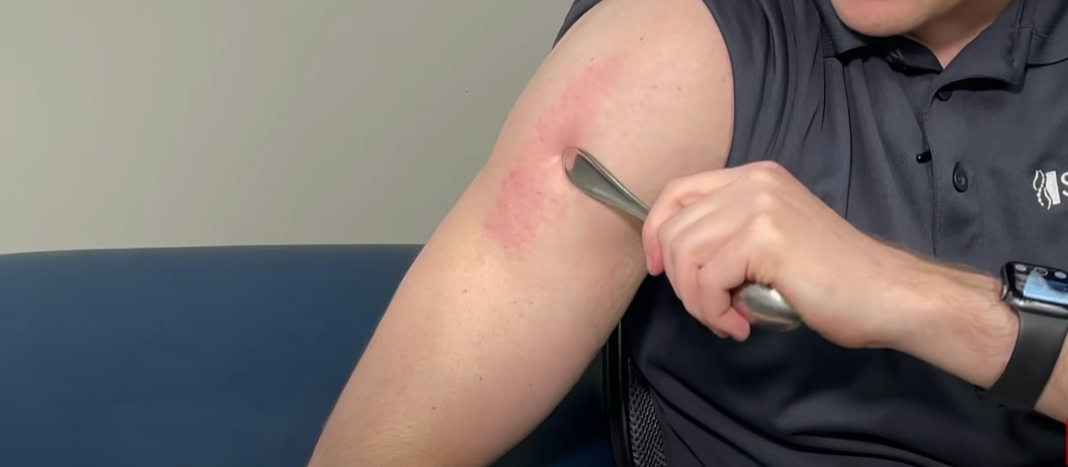Weakness in the arms can be associated with symptoms such as fatigue, reduced mobility, muscle spasms, and tingling. The risk of weak arms when cycling includes hypotonia, a condition in which one’s muscles are underdeveloped. Other associated risks include Neuralgia, sharp burning pain along nerve paths, and polymyositis.
Common causes of arm weakness in cyclists may include nerve compression because of prolonged pressure on the nerves from cycling, muscle strain from overuse, injuries from falls or accidents, and conditions affecting the spinal cord or nerves because of the repetitive motion and posture involved in cycling.
In this blog post, we will explain actual reasons for feeling weak in my arms, effective treatments for arm weakness, and the best home remedies for weak arms.
Why Do My Arms Feel Weak: 13 Common Causes Explained

Regardless of their skill level, many cyclists may experience weakness or discomfort in their arms while cycling. Understanding the potential causes of this issue, including cycling-specific terms, is essential to identify and address the root cause effectively.
Overuse Injuries
Overuse injuries, often seen in cyclists who push their limits or cannot allow adequate recovery time, can manifest as arm weakness. Repetitive movements while cycling may strain the muscles and joints, leading to discomfort and reduced strength in the arms.
Shoulder Nerve Injury
Shoulder nerve injuries, such as damage to the brachial plexus or peripheral nerves, can result from traumatic events like falls or collisions. These injuries cause weakness, numbness, and arm pain, affecting cyclists’ ability to maintain grip strength and control while riding.
Pinched Nerve
The pinched nerve in the shoulder or neck can cause radiating symptoms down the arm, including weakness and tingling. Cyclists with a pinched nerve may experience arm weakness that worsens with specific movements or positions, affecting their comfort and performance on the bike.
Dislocated Shoulder
A dislocated shoulder, often caused by a sudden impact or excessive strain on the joint, can result in arm weakness and limited range of motion. Cyclists recovering from a dislocated shoulder may need to modify their riding position and avoid strenuous activities that exacerbate discomfort and weakness.
Shoulder Or Upper Arm Repetitive Strain Injury
Repetitive strain injuries, commonly seen in athletes with repetitive arm movements, can affect the muscles and tendons in the upper arm or shoulder. Cyclists who engage in prolonged or intense riding sessions may develop these injuries, leading to arm weakness, soreness, and reduced endurance on the bike.
Arthritis
Inflammation of joints causes arthritis to affect cyclists, particularly in the shoulders and elbows. Inflammation and pain associated with arthritis may contribute to arm weakness during rides.
Neurological Conditions

Certain neurological conditions, such as nerve damage or compression, can result in sensations of weakness or tingling in the arms. Cyclists with underlying neurological disorders may experience arm weakness that affects their riding performance.
Vascular Conditions
Vascular conditions affecting blood flow to the arms can also play a role in arm weakness while cycling. Reduced blood circulation may limit oxygen delivery to the muscles, affecting their function and causing weakness.
Infections
Although less common, infections can lead to systemic symptoms such as fatigue and weakness that may extend to the arms. While any illness can be accompanied by muscle inflammation, certain diseases are frequently found to cause chronic fatigue syndrome (CFS). These illnesses include HIV, hepatitis C, Lyme disease, and influenza.
Cyclists experiencing persistent weakness should consider the possibility of an underlying infection affecting their health and performance.
Vitamin Deficiencies
Vitamin deficiencies, like B12 or vitamin D, can cause muscle weakness and fatigue. Cyclists should maintain a balanced diet to prevent deficiencies impacting their arm strength.
Inflammation of the Spine
Inflammation of the spine, whether because of injury or underlying conditions, can cause nerve compression and radiating symptoms of weakness in the arms. Cyclists with spinal issues may experience arm weakness that requires attention and proper management.
Spinal Cord Compression
Spinal cord compression, a severe condition that can result from trauma or degenerative changes in the spine, may lead to weakness, numbness, or tingling in the arms. Proper diagnosis and treatment are crucial for cyclists experiencing symptoms of spinal cord compression.
Sleep Disorders
An apnea sufferer’s sleep could affect overall energy levels and muscle function, potentially contributing to arm weakness during cycling. Addressing underlying sleep issues is essential for maintaining optimal performance and well-being.
Aging
Aging can bring about natural changes in muscle strength and flexibility, affecting cyclists’ ability to maintain peak performance. As cyclists age, they may experience gradual declines in arm strength, requiring adjustments in training and riding techniques.
Effective Treatments for Arm Weakness
A weak arm can really affect daily activities and physical performance, especially for people who cycle a lot. The treatment approach for arm weakness varies based on the underlying cause. Here are some common treatments that may be recommended to address arm weakness effectively:
Medication
To alleviate symptoms associated with arm pain, healthcare providers may prescribe medicines like muscle relaxers, pain relievers, and anti-inflammatory drugs. These medications reduce pain, inflammation, and discomfort, promoting better arm function.
Surgery
Surgical procedures may be recommended where structural issues or nerve compression require intervention. Surgery can address conditions like nerve impingement, tendon injuries, or joint instability contributing to arm weakness, restoring optimal function and strength.
Splinting or Bracing

Splinting or bracing the affected arm can provide support, stability, and protection during healing. These devices can help immobilize the arm, reduce strain on injured tissues, and promote proper alignment for improved recovery from conditions causing arm weakness.
Anti-inflammatory Medications
Pain relievers, such as nonsteroidal anti-inflammatory drugs (NSAIDs), can help reduce swelling, pain, and inflammation in the affected arm. Controlling inflammation is crucial for managing conditions like arthritis, tendonitis, or overuse injuries contributing to arm weakness.
Home Remedies For Arms Weak
Apply Heat or Ice Packs
Putting heat or ice on the arm can ease pain, ease muscle tension, and increase blood flow. Heat therapy can relax tight muscles, while cold therapy can numb pain and reduce inflammation, relieving arm weakness.
Rest the Affected Arm
Recovery from a weakness requires adequate rest and avoiding activities that aggravate symptoms. Rest allows the muscles and nerves to heal, reducing strain and supporting the body’s natural healing processes.
Maintain Good Posture
Maintaining proper posture during daily activities, including cycling, can prevent unnecessary strain on the arms and shoulders. Correct posture supports spinal alignment, reduces muscle tension, and promotes balanced muscle engagement, minimizing the risk of developing arm weakness.
Stay Hydrated
The health and function of muscles depend on hydration. Dehydration causes muscle cramps, weakness, and fatigue, which can affect arm strength and performance. Consuming a sufficient amount of water throughout the day promotes muscle function and prevents arm weakness.
Eat a Healthy Diet

Nutrition and muscle recovery. The proper diet with vitamins, minerals, protein, and antioxidants supports muscle health and function. Nutrient-dense foods like fruits, vegetables, lean proteins, and whole grains can help address arm weakness and promote overall well-being.
Conclusion
A weak arm can be more than just an inconvenience; it can hamper your performance and affect your daily activities. Remember, a weak arm can significantly impact your cycling performance and daily activities. To address the issue effectively, it’s essential to understand the root cause of the issue.
Various options exist for regaining arm strength, such as medication, surgery, rest, or good nutrition. However, if you experience persistent weakness, listening to your body and seeking professional help is crucial.
FAQs
Which Nerves Cause Arm Weakness?
A motor nerve injury typically results in muscle weakness, which may also cause severe cramps, muscle twitching, muscle atrophy, bone deterioration, and changes to the skin, hair, and nails.


